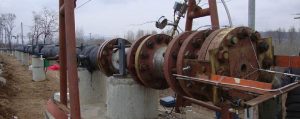Carbon Capture and Sequestration (CCS) involving the capture of CO2 from fossil fuel power plants followed by its pipeline transportation for geological storage is destined to play a major role in reducing the impact of global warming at least for the next three decades. However, the captured CO2 will contain various types of impurities, and the cost of their removal prior to pipeline transportation will have a major impact on the economic viability of CCS.
So far, most of the studies performed on the above topic have been limited in scope, primarily focusing on investigating the impact of the CO2 stream impurities on each part of the CCS chain in isolation.This is a significant drawback given the markedly different sensitivities of the pipeline, wellbore materials and storage sites to the various CO2 impurities.
Coordinated by University College London, CO2QUEST project involving the collaboration of 12 industrial and academic partners in Europe, China and Canada focusses on the development of state-of-the-art mathematical models along with the use of large scale experiments to identify the important CO2 mixtures that have the most profound impact on the different parts of the CCS chain.


These include the pipeline pressure drop and compressor power requirement, pipeline propensity to ductile and brittle facture propagation, corrosion, geochemical interactions within the storage site, and the ensuing health and environmental hazards. Based on a cost/benefit analysis and whole system approach, the results are in turn employed to provide recommendations for CO2 purification levels, mixing protocols and control measures for pipeline networks and storage infrastructure thus contributing to the development of relevant standards for the safe design and economic operation of CCS.
CO2QUEST won the Institution of Chemical Engineers 2016 Global Process Safety Award
Introduction from Professor Haroun Mahgerefteh
